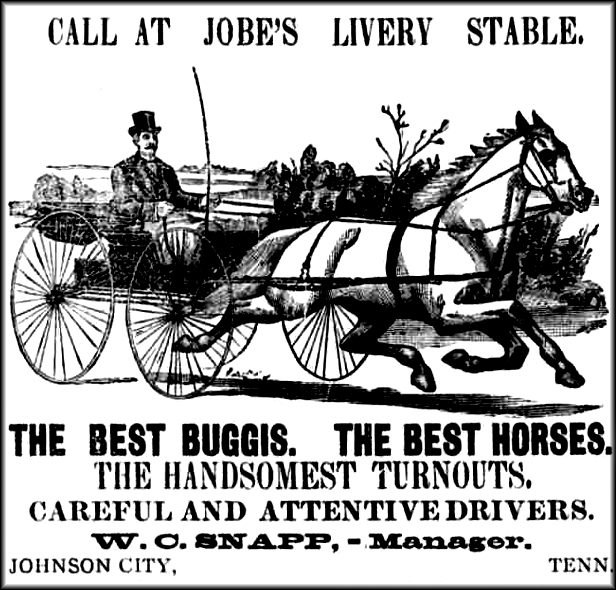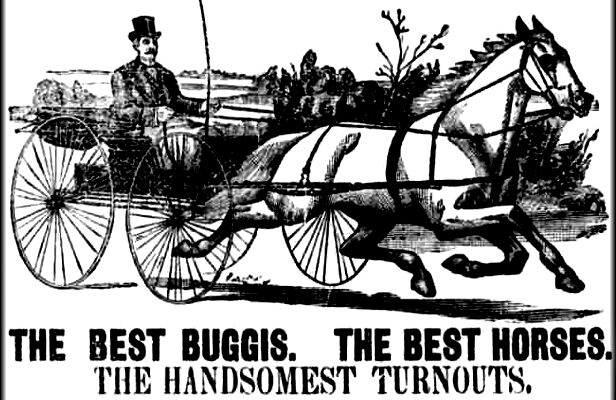On Sept. 17, 1890, a Memphis journalist, known only as Mr. J and who was a cousin of Johnson City's mayor, Ike T. Jobe, took a train ride to our city, first on the Memphis and Charleston Railroad and then over the East Tennessee, Virginia and Georgia Railroad.
The writer noted that until a year or so prior, the area was unworthy to be called a city because it was nothing more than a railroad station with a few diminutive stores and residences scattered about. Nevertheless, older inhabitants always had an abiding faith that something much better was in store for them.
In about 1888, the town began to take on a new image. Northern capital began finding its way to our area. As a result, new railroad lines were surveyed and constructed; manufacturing facilities were built in record number; and the surrounding hills and mountains disgorged its hidden treasures of iron and coal.
Almost overnight, Johnson City's modest village became a municipality of about 5,000 inhabitants. A 125-ton capacity blast furnace was among the substantial improvements of the newly formed Carnegie Land and Impartment Company.
Suburban lands were summarily subdivided into town lots, streets graded and scores of new residences and businesses houses constructed. One of the most beautiful one was a $100,000 lodge named Carnegie Hotel after the famed industrialist. The city acquired the distinction of being the seat of the largest tannery (The Horton and Yokum Co.) in the United States.

The Comet Newspaper Advertises Jobe's Livery Stable on E. Main Street
Upon arrival at Johnson City, the journalist became the guest of Ike T. Jobe, who, that same week, took him on an excursion over the narrow gauge East Tennessee and Western North Carolina Railroad that spanned a distance of 32 miles to Elk Park, N.C., just over the Tennessee line. As the train made its serpentine journey across the wild and rugged mountains, the vehicle passed through five tunnels in just four miles. The journalist described the area as being “a most beautiful and picturesque mountain region.”
Mr. J visited Elk Park, a small town built up in the mountains, having an elevation of 3,250 feet above sea level with climate rarely exceeding 80 degrees Fahrenheit. The reporter was informed that only a few mile away was the celebrated Roan Mountain, renowned for being the highest elevation for many miles around. From its cloud-capped pinnacle could be seen portions of five States.
Two miles east of Elk Park, Mr. J. encountered the mining village of Cranberry, where the finest iron ore to be found in the country was obtained in copious quantities. The blast furnace and the mines furnished abundant employment to many workers. He described it as a very busy and prosperous community.
During Jobe's cousin's abbreviated stay at Elk Park, he was the guest of another cousin, Mrs. Hattie Taylor and her husband, Nat W., brother to the Honorable Robert L, Taylor, Governor of Tennessee, described as “a most amiable gentleman.”
After departing, the train made a stop at Elizabethton. This town, the county seat of Carter county, was a small place but, according to the reporter, delightfully situated. Surrounded on all sides by lofty hills, the town was built at the convergence of the Doe and Watauga rivers.
Mr. Jobe explained to his relative that “Watauga” was an Indian name, signifying “beautiful river.” No one who viewed it and the lovely valley which stretched away to the west of Elizabethton, could refrain from agreeing with Landon Carter Haynes when he succinctly said, “It is beautiful indeed.” When viewed from one of the lofty hilltops nearby, it became a scene perfect for both artist and poet.
Ike explained to his cousin that nearby lived an uncle, Dr. A. Jobe, whom he had not seen since his boyhood days. He resided there for many years and played a conspicuous role in the history of East Tennessee.
After the writer made a hesitant adieu to Elizabethton, he made short stops at Johnson City and Cleveland, Tennessee, before heading home, bringing to a finale a passage that he would not soon forget.
Thank you Mr. J, whoever you are, for sharing another history nugget about our area.

Comments are closed.